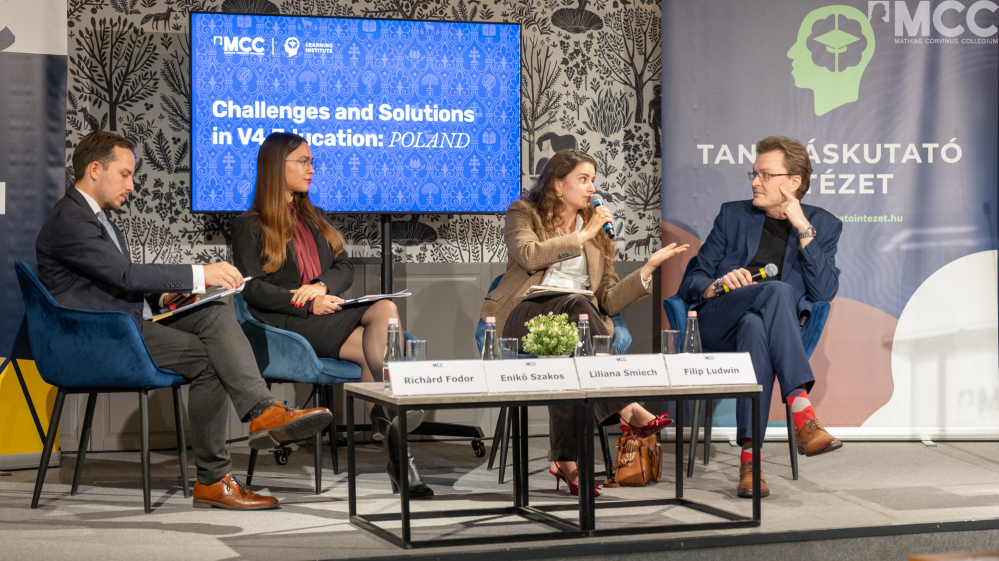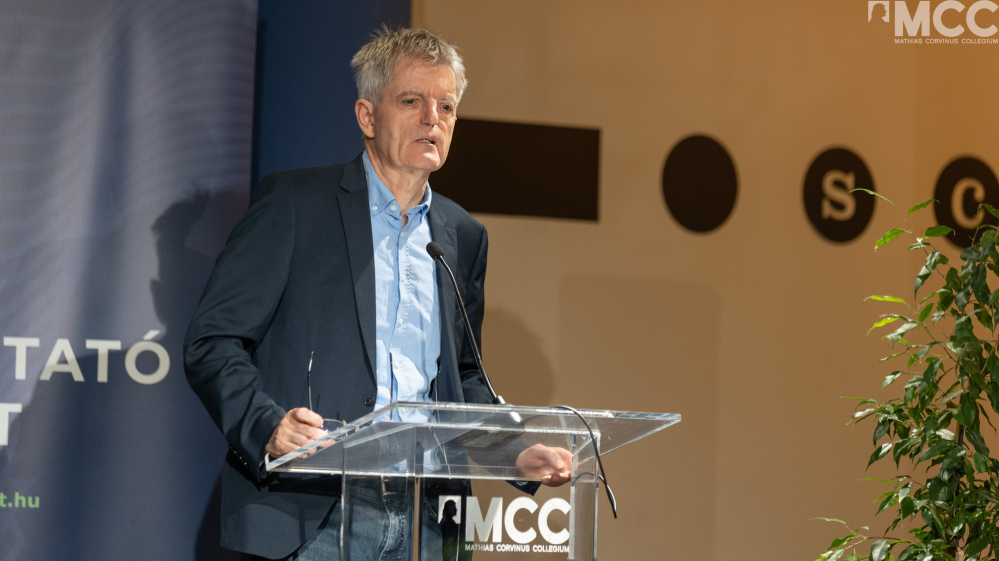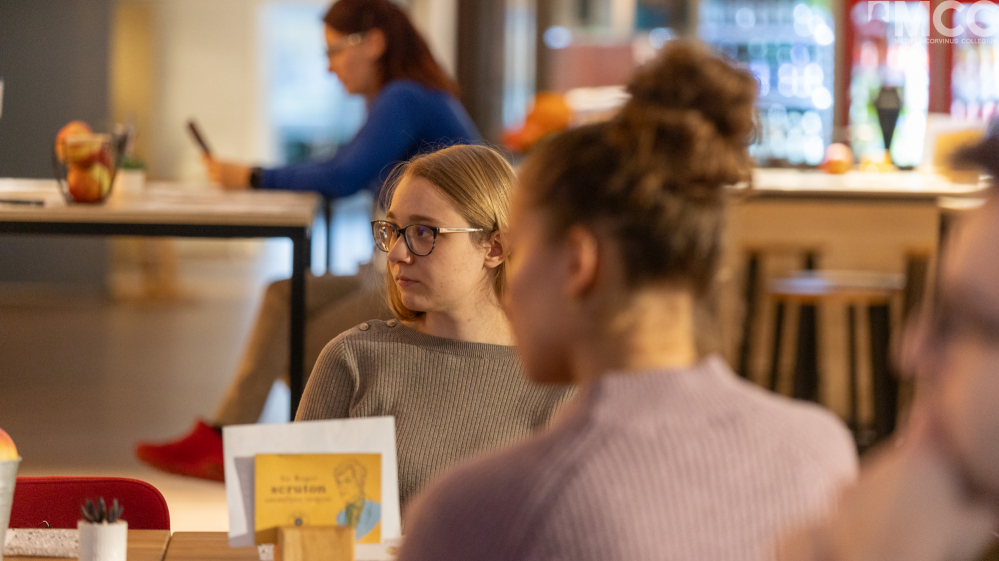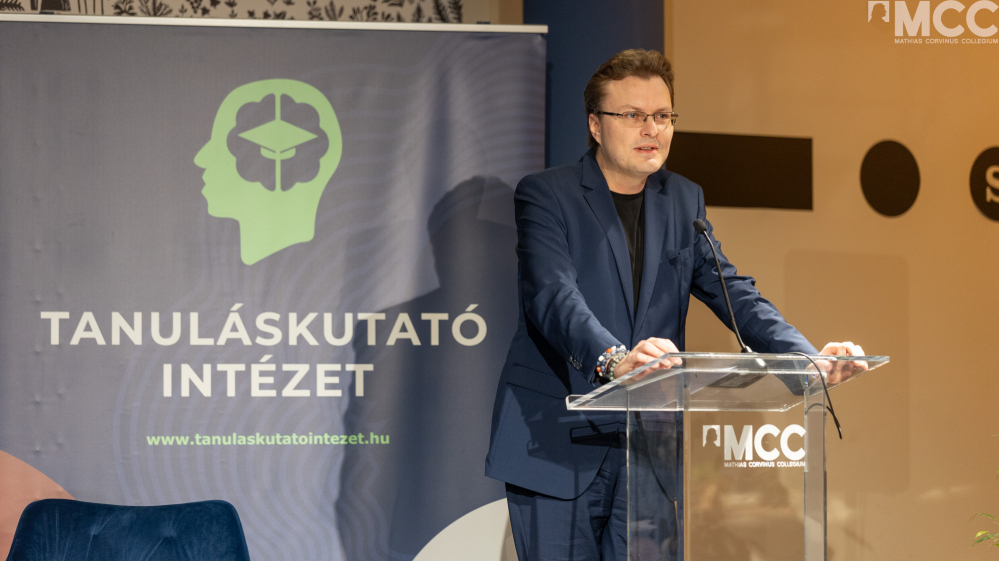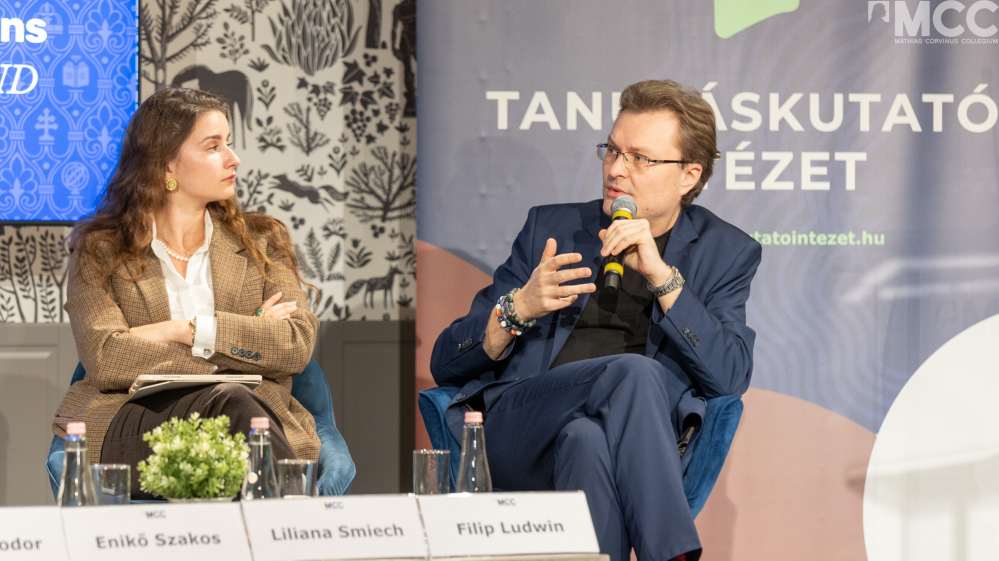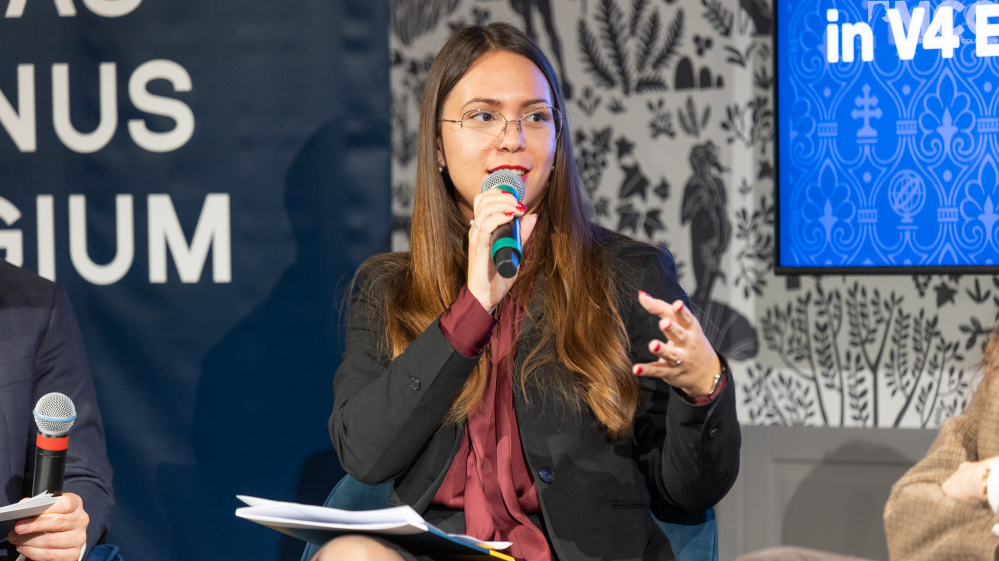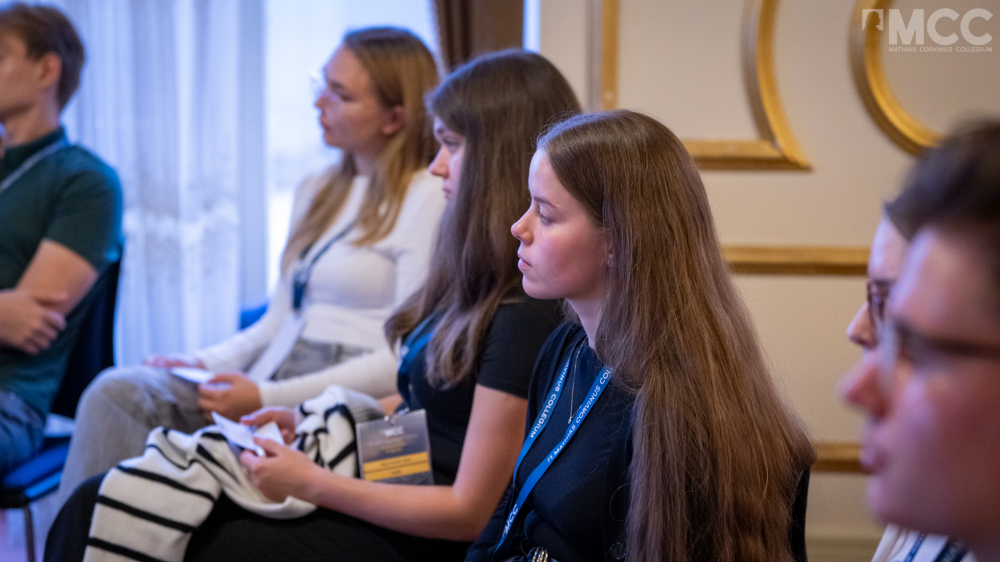The Polish education system faces several significant challenges, ranging from teaching methodologies to systemic instability. In a recent discussion, key experts highlighted these issues and proposed potential solutions to create a more stable and effective educational environment.
First of all János Setényi, director of the Learning Institute, open the event and after that Filip Ludwin, doctor of jurisprudence, head of the publishing department, led the conversation.
Filip Ludwin talking about, that in higher education, there is a renewed interest in classical education and the humanities, which can provide students with a well-rounded worldview and the ability to think critically. However, the current system tends to prepare students primarily for employment in multinational corporations, focusing on practical skills rather than a deeper understanding of cultural, ethical, and philosophical subjects. Some experts argue for a balanced curriculum that includes mandatory humanities courses, allowing students to develop not only practical skills but also a more holistic understanding of society and their role within it.
After that, Our moderaters, Enikő Szakos and Richárd Fodor researcher in the Learning Institute, are started the discussion with there questions, How has Poland’s education system evolved, and what are the successes and challenges of recent reforms?, What are the impacts of changes like abolishing homework and the "past and present" subject?, What role does classical education play in Polish universities? etc.
Liliana Smiech, Director General of International Relations of the National University of Public Service, Chairman of the Foundation Board of the Warsaw Institute, highlited that, one of the primary issues discussed was the intense focus on exam preparation. Polish students are often trained primarily to pass standardized exams rather than to develop critical thinking, creativity, or problem-solving skills. Many parents invest heavily in additional courses aimed solely at improving test scores, further reinforcing a system that prioritizes exam performance over genuine learning. In contrast, educational models in countries like Finland encourage students to think independently and engage deeply with content. This contrast points to the need for Poland to reconsider the purpose of education and to cultivate intellectual curiosity rather than rote learning.
Another challenge is the lack of financial and societal support for teachers, which has contributed to a decline in the quality and prestige of the teaching profession. With low salaries and minimal professional requirements, the profession lacks the elite status it once had, making it less attractive to qualified individuals. Increasing support for teachers, both financially and in terms of training, could help attract and retain skilled professionals, as well as raise the profession’s standing in society.
Filip Ludwin highlighted, that, the frequent political changes in Poland have led to a lack of stability in the educational system. Every new government brings with it a wave of reforms, treating education as a tool for political objectives. This inconsistency disrupts the learning environment and makes it difficult to implement long-term strategies for improvement. Many experts believe that education should be a bipartisan issue, with reforms focusing on the long-term benefit of students rather than political agendas.
Liliana Smiech highlited, that the debate over homework is also significant, particularly in the context of AI. While homework is essential for developing discipline and reinforcing learning, the rise of AI tools such as ChatGPT has changed how students approach assignments. This raises questions about the effectiveness of traditional homework in developing skills and the potential for AI to transform education. While younger students may not yet use AI extensively, its growing accessibility suggests a need to rethink educational approaches and find a balance between technology and traditional learning.
Stability and a shared vision across political divides could help establish a more effective system that serves all students equitably. While there are differing opinions on the role of privatization and other structural changes, there is a consensus that education reform should prioritize consistency and adaptability to prepare future generations for a rapidly changing world.

